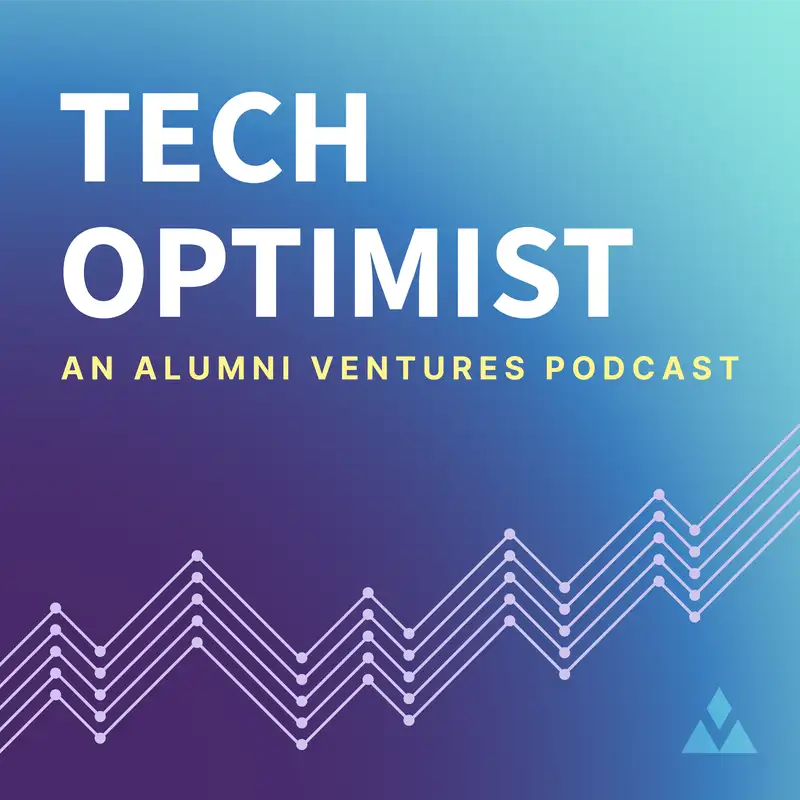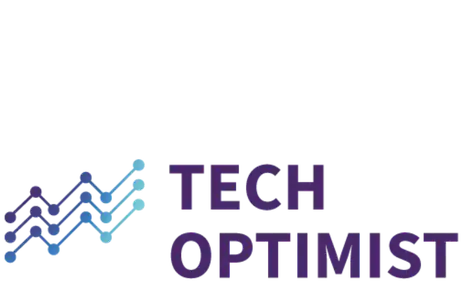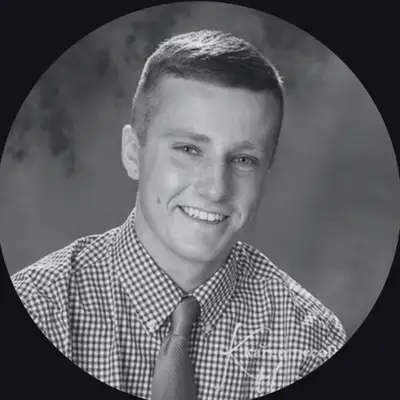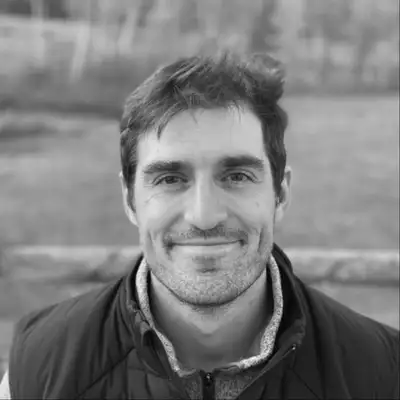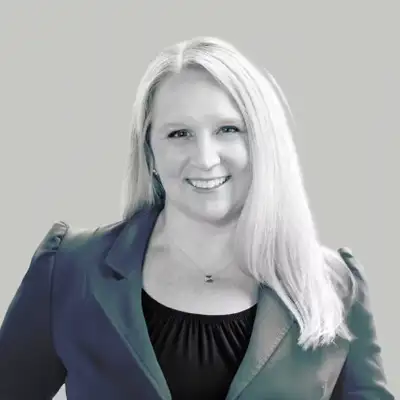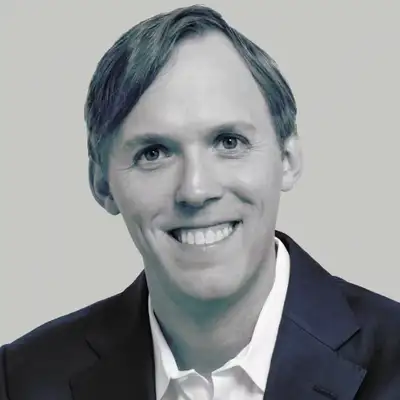#35 - Meet the Startup Leveraging AI for Strategic Talent Placement
Samantha Herrick:
Can AI help you get your next job? Let's find out.
Fernando Rodriguez-Villa:
The more we can work the technology into existing workflows, that felt like the right way to get to scale faster, and get to impact faster.
Pete Mathias:
There will be many, many more of these roles that are hyper niche, that are hyper specialized, in other words, that AI cannot simply duplicate.
Fernando Rodriguez-Villa:
But also, that systems like ours can make sense of vast amounts of semi-structured data.
Samantha Herrick:
Hello everyone. Welcome back to this episode of the Tech Optimist, meet the Startup, AdeptID. We have an awesome episode planned for you, and the voices you'll here today are from Pete Mathias, our partner here at Alumni Ventures, who you've heard before, and Fernando Rodriguez-Villa, co-founder and CEO of the Startup AdeptID. And then of course myself, your check note writer, Sam Herrick here, ready to take you along this journey. Join me, let's go.
In a world captivated by criticism, it's easy to overlook the groundbreaking technologies shaping our future. Let's shine a light on innovators who are propelling us forward.
As the most active venture capital firm in the U.S., we have an exceptional view of tech's real world impact. Join us as we explore, celebrate, and contribute to the stories of those creating tomorrow. Welcome to the Tech Optimist.
As a reminder, the Tech Optimist podcast is for informational purposes only. It is not personalized advice, and it's not an offer to buy or sell securities. For additional important details, please see the text description accompanying this episode.
Pete Mathias:
Welcome to another episode of the Tech Optimist. Today, we have a special guest, Fernando Rodriguez-Villa, and we are talking future of work. AdeptID is the brainchild of Fernando and his team, and we are going to dig into one of the greatest assets that we have in the world, that is the workforce. Fernando, thank you for joining us. Give us the background, give us the elevator pitch. What is AdeptID building?
Fernando Rodriguez-Villa:
We are AI talent matching infrastructure for the talent industry. My co-founder Brian and I started the company in 2020 because we felt like there was an opportunity to harness AI to identify talent in the majority of the workforce that is poorly served by the existing companies, and also tech tools. As you alluded to, Pete, common knowledge that there are tens of millions of folks that are underemployed in this country. While at the same time, there are these structural skill gaps, or at least perceived skill gaps, in critical industries like healthcare, cybersecurity, renewable energy. These are all really big problems in the economy and society that have huge workforce components, but these perceived shortages. I think a lot of energy and thought has gone into, what are the changes that companies can make in the way that they look at talent, or what is the type of training or education that's required to provide some better economic mobility, or better pathways for individuals to go from jobs where they're underemployed to jobs that are of critical need?
Less attention has been paid on the actual tools, and even with a lot of, I think, positive energy and will be behind trying to improve job mobility in this country and around the world, we're still using applicant tracking systems and job boards, and certainly, a lot of education infrastructure that just exacerbates the problem, because it has a very simplistic way of looking at someone's work history, or their education, or their potential. Brian and I have been building AdeptID as a technology layer that sits underneath all of those ATSs, HRASs job boards, et cetera, and then allows them via API to identify talent on the basis of potential.
Samantha Herrick:
A little bit more on AdeptID. I am currently on their website, on their "Our Missions" page at adept-id.com/our-mission, and I'm just going to read it all, because I think it really adds to what Fernando is saying here, and what their company does. Our mission: "AdeptID's mission is to get more people into better jobs faster. We believe that everyone is adept. All individuals have skills, capabilities and aspirations that make them able to succeed in jobs, even jobs that are different from what they've done before. We believe that technology can be used to identify potential and make connections to benefit all stakeholders. Our transformational matching technology connects people, training and jobs. As we connect the diverse applications and the talent ecosystem, we serve as a keystone to get more people into better jobs faster. Inclusivity, collaboration and transparency are not only requirements for our technology, but also for our work with each other. We are a public benefit corporation headquartered in Boston, Massachusetts, and active worldwide."
The definition of adept is, very skilled or proficient at something. A person who is skilled or proficient at something. It really makes you think about their company name, right? It's helping stakeholders ID those people or individuals who are very skilled or proficient at something, and that something obviously is tailored per company, and per position opening.
All right, everyone, you know the drill. We're going to hop into a quick break, and then straight into the interview. Don't go anywhere, trust me.
Matt Caspari:
Hey everyone, just taking a quick break so I can tell you about the Deep Tech Fund from Alumni Ventures. AV is one of the only VC firms focused on making venture capital accessible to individual investors like you. In fact, AV is one of the most active and best performing VCs in the U.S., and we co-invest alongside renowned lead investors. With our deep tech fund, you'll have the opportunity to invest in innovative solutions to major technical and scientific challenges which can have a hugely positive effect on society, companies that have the potential to redefine industries and create a more sustainable future, and deliver significant financial returns. If you're interested, visit us at av.vc/funds/deeptech. Now, back to the show.
Pete Mathias:
2020 is an early time to be thinking about AI at the intersection of workforce. The talent gap is an observation that became obvious after COVID, how profound it is. How did you come to this insight? Tell us your origin story, the Fernando inception.
Fernando Rodriguez-Villa:
I've been working at this intersection of AI and large, messy economic data sets for most of my career. After a stint in finance a long time ago, I worked for a company called Newton that was applying AI to education proficiency data, to try to power personalized learning at scale. I've been really attracted to this idea that you can connect that technology with large, poorly understood data sets, with a lot of messy and complicated stakeholders to solve these problems, and to do it under the hood. That company, like AdeptID, doesn't have a front end or a thing to log into. We interact with our users in the backend, much like a Stripe or a Twilio or a Plaid.
That has, I think, always been an attractive business and product model for me. As Brian and I started really thinking about, what is the right way to get this type of technology into the bloodstream of the talent industry to impact the most people the most profoundly, really building our own ATS, or building a point solution felt like it just wouldn't be big enough, and it wouldn't really meet folks where they are. I think a lot of individual job seekers or talent seekers, employers alike, don't want other things to log into. They don't necessarily want to go out and procure a new point solution. There's a lot of vendor fatigue, particularly in the HR space. The more we can work the technology into existing workflows, that felt like the right way to get to scale faster, and get to impact faster.
Last year, in 2023, there were 3.6 million people who used tools that used AdeptID. None of those people necessarily knew who AdeptID was, but because they were interacting with an isolved or UKG or whatever it is, they were getting surfaced for their skills because of our technology. This year, we're on pace to 16 million, and that dramatic uptick wouldn't have been possible if we were going out and selling employer to employer. Our ability to partner and sell into these nodes in the network has allowed us to get to a lot of scale, which, for the purposes of what we're trying to do, which is train on a lot of information of people going from job to job, successfully or not, the bigger footprint and the more training data we have access to, the better our solution gets.
Pete Mathias:
Fernando, let's talk about tailwinds. You've talked about the scale that you've achieved at this point. Zoom us out, market level, global trends level, what are, really, the energies that are electrifying AdeptID into this exciting future of work frontier?
Fernando Rodriguez-Villa:
Well, there are a couple that are market, and then, there are a couple that are technology-based. I think, from a market perspective, we talked a bit about, certain industries are really feeling the pain of not having access to workforce that's appropriately skilled, and they historically have been defaulting on this very 20th century notion that they have to find talent that has done the job before. If the job is so new that there just aren't people out there who've done it, then you need to have a more predictive way of finding talent. There's a bit of tailwind behind the wind turbine tax, which, if you're going out and trying to find someone who's done that job, you're just going to have a really hard time. There's already a bit of changing minds and hearts around finding more predictive ways, which technically, is actually pretty complex.
There is a need for technology to play a role in addition to that changing mindset, and that's been a positive tailwind for us. That gets described often as skills-based hiring, which has become a huge theme within the HR and workforce world. I think on the technology side, this recent advent of, call it the GPT-3 and beyond availability of LLMs, has meant not just that things like chatbots are easier and more personable to interact with, but also that systems like ours can make sense of vast amounts of semi-structured data. Until a couple of years ago, most of the learning that we did from a technology basis came from much more readable data points, like whether someone got a job or not. That's easier to quantify, it's easier to make sense of, the systems could crunch it at more scale.
Now, we're looking at things like notes between recruiters and each other, notes between recruiters and talent, which gets into intent and preference, which is much more powerful in trying to map the likelihood of job transitions, and spot talent that's a fit. That's the technology of why now that complements, I think, the market why now, at just the right time.
Pete Mathias:
Undeniably, the convergence of AI and the manifestation of this talent gap will mean that there are so many roles that not only become duplicative, but actually become novel, and new. Certainly, the wind turbine tax specialist, there will be many, many more of these roles that are hyper niche, that are hyper specialized, in other words, that AI cannot simply duplicate, so clearly tailwinds, clearly tailwinds for you.
Samantha Herrick:
All right, I'm hopping in here quick to provide some hiring statistics for the year of 2024 so far. Some sources for this are the U.S. Bureau of Labor Statistics and recruiterflow.com. Job openings in the labor market, as of May 2024, there were 8.1 million job openings in the U.S., which was down by 1.2 million compared to the previous year. The job openings rate was 4.9% in May. Hires were at 5.8 million in May, and the quits rates were at 2.2% in May. Now, some challenges with this, 90% of hiring managers find it difficult to source skilled candidates. Therefore, AdeptID might be a solution for them. 52% of recruiters face challenges in hiring top choices before competitors, and the average cost per hire is approximately $4,700. It costs three to four times a position salary to hire a new resource.
As far as candidate experience, 60% of job seekers do not finish an application process due to its length or complexity. 55% of candidates believe it should take one to two weeks to go from first interview to job offer. On average, it takes about 23 days for an interview process to finish. That's absolutely bonkers, and absolutely wild.
Speaker 5:
Do you have a venture capital portfolio of cutting edge startups. Without one, you could be missing out on enormous value creation, and a more diversified personal portfolio. Alumni Ventures, ranked a top 20 VC firm by CB Insights, is the leading VC firm for individual investors. Believe in investing in innovation? Visit av.vc/foundation to get started.
Pete Mathias:
When you look at Alumni Ventures, a firm that has tentacles in all markets in the United States, that has a very diversified group of investors from all areas of American business, what asks do you have for a community like ours? What are the top of mind things on Fernando's plate where a firm like us can help?
Fernando Rodriguez-Villa:
Well, I think for starters, there's always just spreading the word that there is now technology available to identify talent based on potential, and that all of us, describing the broader AV community here, as employers, as decision makers in business, beyond talking the talk of, "We're starting to look for talent based on potential because we're removing a degree requirement, or because we're trying to change our interview format." I think those are all noble first steps, but really, we need to follow through to making sure that the tech stack that we're using to identify and support talent is on the same page that we are, and is data-driven, and is thinking about talent this way. That's something that I think everyone can do independent of whether you're an AdeptID customer, or an investor or not, we're always looking for those.
Definitely, that case is on the list, too. Our hope, and given some of the numbers that I shared earlier, if we're impacting 16 million workers in the United States, it's very likely that there are people who are listening to this podcast who either applied for a job where an AdeptID recommendation played a role, or might be hiring using a platform that is using AdeptID. We get a kick out of that, and hopefully, that continues.
Pete Mathias:
Well, Fernando, at one point, AdeptID was a whiteboard idea. It was nothing. Today, you now impact the lives of 16 million in the workforce. Thank you for that contribution, not just a tech contribution, but a civic contribution, and thank you very much for joining us today on the Tech Optimist.
Fernando Rodriguez-Villa:
Right on.
Pete Mathias:
Thanks Fernando.
Fernando Rodriguez-Villa:
Thank you, Pete.
Samantha Herrick:
Thanks again for tuning into the Tech Optimist. If you enjoyed this episode, we'd really appreciate it if you'd give us a rating on whichever podcast app you're using, and remember to subscribe to Keep up with each episode. The Tech Optimist, Welcomes, any questions, comments or segment suggestions, so please email us at info@techoptimist.vc with any of those, and be sure to visit our website at av.vc. As always, keep building.
